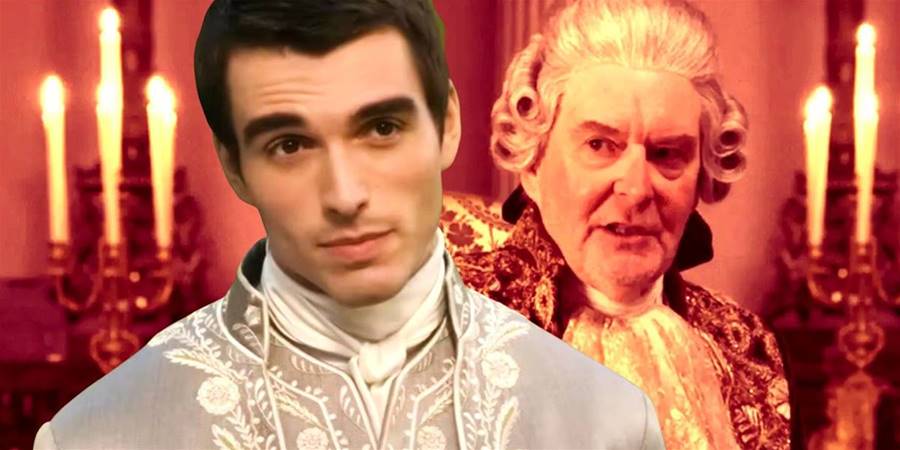

King George's appearances in seasons 1 and 2 are brief, and he is mentioned infrequently - partly because he’s not meant to be a major character and partly because, by that point in time, he was simply too ill to appear publicly. , meanwhile, establishes George as a key character, of course. Played in by James Fleet, King George III is portrayed in the spin-off by Corey Mylchreest, in his early 20s.
King George III's three appearances in are initially only relevant because of what they reveal about Queen Charlotte. The brief dinner scene with Queen Charlotte and King George III in Season 1 provides a somewhat true-to-life explanation for Queen Charlotte’s interest in the fictional Lady Whistledown.
As soon as we see how tortured King George III has become, and how much this disturbs his wife, it becomes perfectly clear that Charlotte needs a distraction – and Lady Whistledown provides such a perfectly enveloping and delightful diversion that, at times, Queen Charlotte seems to forget her husband’s poor health. goes even further into exploring their romance and their ongoing relationship dynamic, as well as his illness.
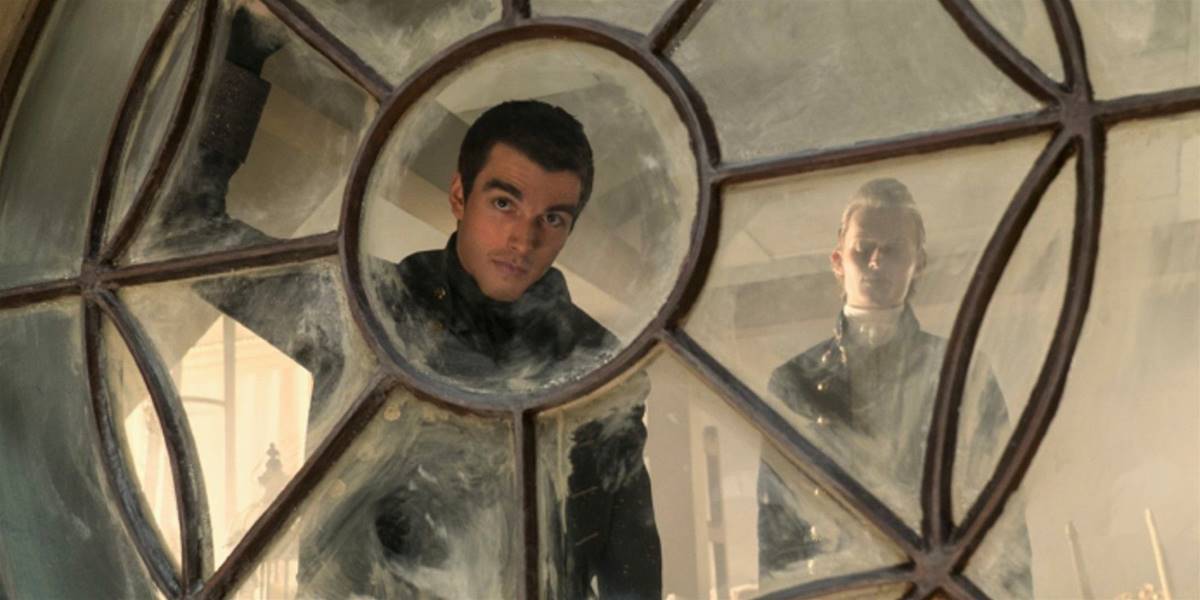
Often reductively referred to as the "Madness of King George", George III's psychological issues have been a matter of fierce debate over the years.
What is not up for debate is the fact that George was unable to continue ruling as a monarch by the time he reached middle age. That prompted his son, George IV, the Prince of Wales to take over the king's duties, as Prince Regent. Sadly, George III’s incoherency and instability made him a poor face for the royal family, and he was kept out of the public eye to protect the monarchy’s image, much like what is seen of King George in .
By King George III’s later years, he was kept confined and out of sight. Unlike what's seen in , Queen Charlotte had reportedly stopped dining with George. She slept in a separate bedroom from George and refused to be alone with him from 1804 onward.
By 1813, , it’s believed that Queen Charlotte had stopped seeing George altogether. He suffered several extreme periods of ill-health, for a long time attributed to porphyria, and was incarcerated in Kew for his own good. After his final relapse in 1810, the King never recovered, and he died in 1820.
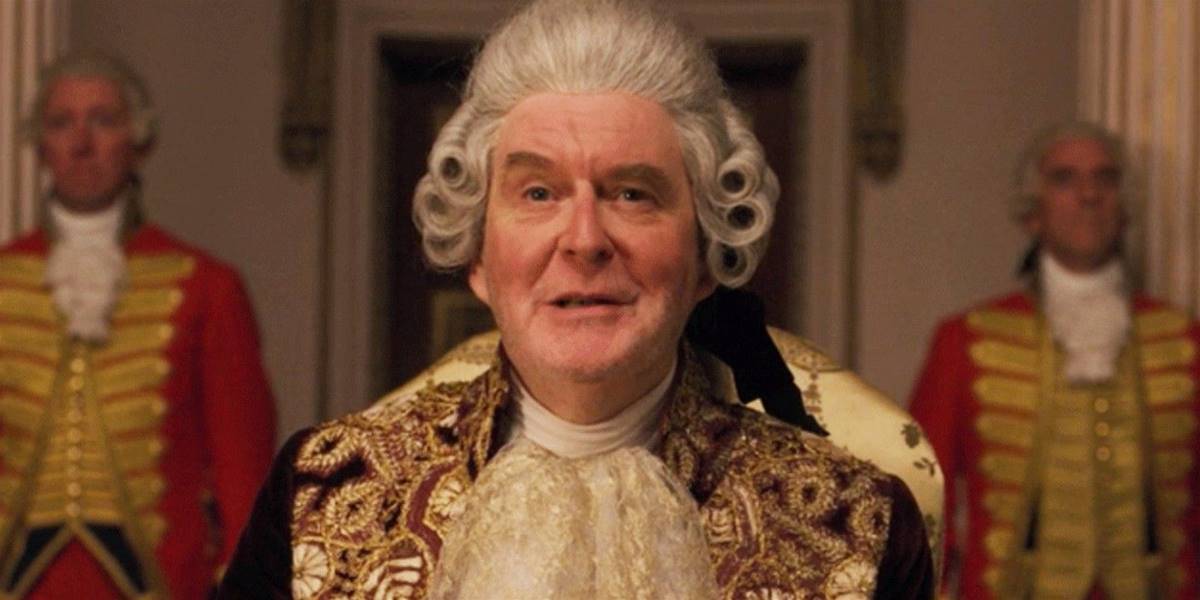
While King George III is mentioned in , he plays a mostly offscreen role, but his illness is very much based on historical accounts of the monarch.
According to these accounts, King George III’s illness included symptoms like convulsions, frothing at the mouth, rambling incoherently, bouts of depression and, later in his life, the loss of his hearing, vision, memory, and ability to walk. After the death of Princess Amelia, George sank into a deep depression and never recovered from the loss of his favorite daughter. In 1811, King George III enacted the Regency Act, which allowed his son . Queen Charlotte became George’s legal guardian and the king’s mental and physical health continued to deteriorate until his death in 1820.
The exact cause of King George III’s “madness” is a topic of debate among historians and physicians.
Until recently, the prevailing theory was that King George III had porphyria (a rare liver disorder) and that his exposure to arsenic contributed to worsening symptoms. Though evidence for King George III having porphyria is well-documented, and the theory is still widely accepted, conflicting theories have emerged in recent years. In the last decade or so, scientists, doctors, and historians have posited that King George III did not, in fact, have porphyria, but instead had some combination of bipolar disorder, chronic mania, and dementia. Dr. Peter Garrard of St George's, University of London [via
]. went so far as to call the theory dead, saying:
The porphyria theory is completely dead in the water. This was a psychiatric illness.
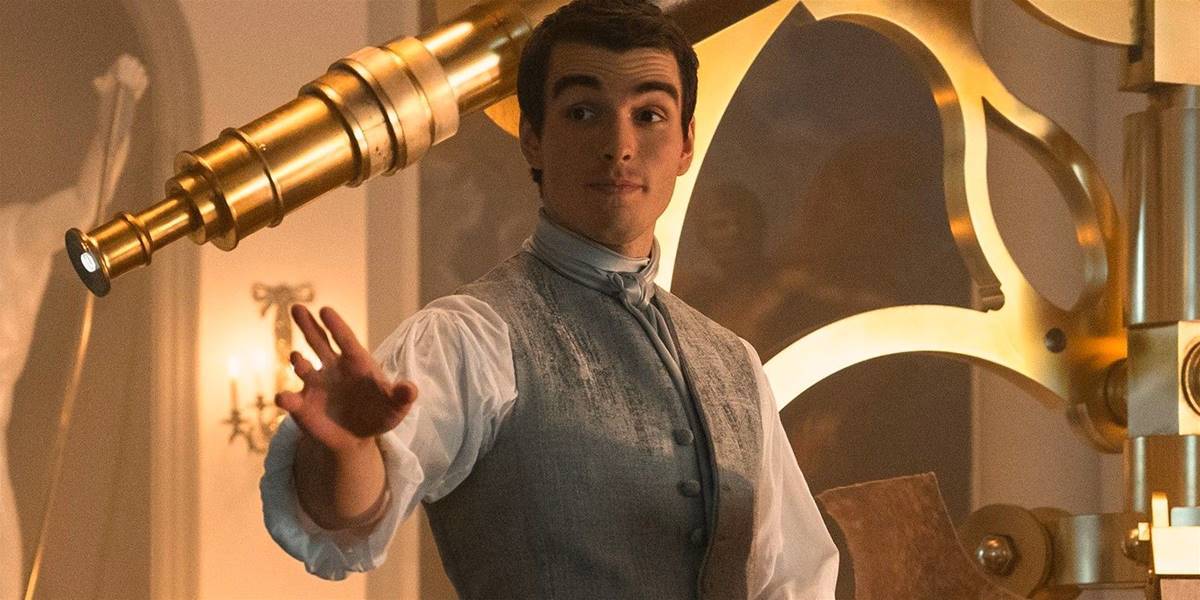
As demonstrates, King George III was put through medically-approved hell for the sake of "improving his condition", as reveals in horrifying detail. Rather than opting into the treatment, George was moved to Kew by force, by a team of court physicians and then, finally, by leading mental health expert Dr Francis Willis, whose methods were cruel and beliefs misguided.
Willis believed mental illness was a product of overexcitement, and the natural remedy was restrictive, calming measures. These included:
Unlike in , when George was being treated with these torturous methods, which continued throughout his life, Charlotte and his daughter would be at Kew as well. The extent of the treatments are shown in , though some of it is left to the imagination, making them arguably even worse
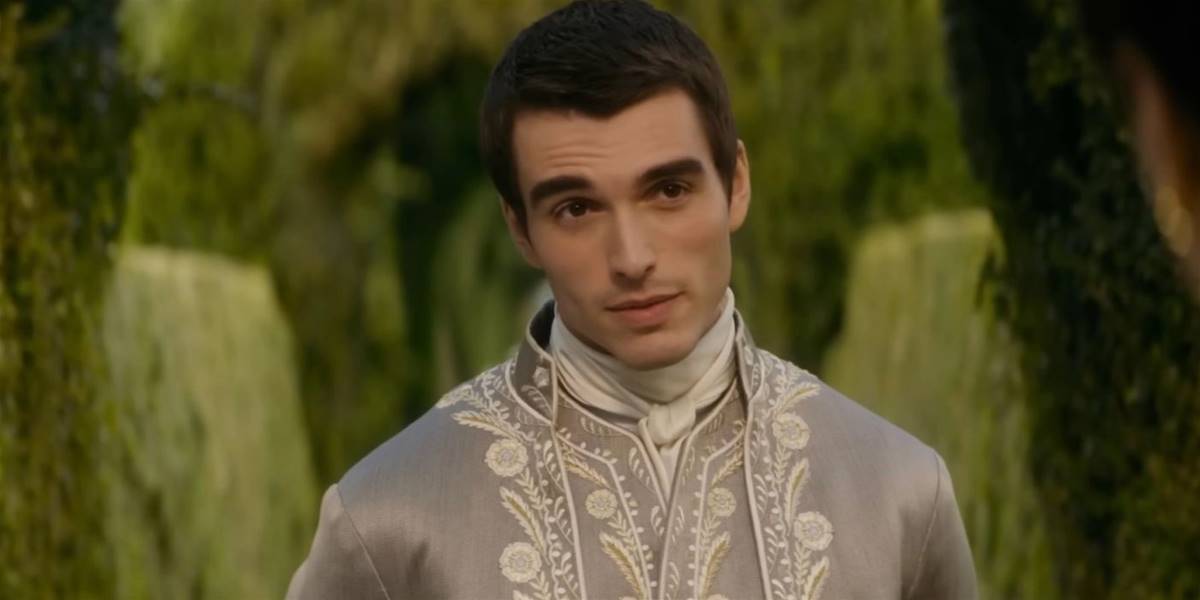
While the prevailing theory for a long time was that King George III was suffering from porphyria - which may well have been the case given the use of arsenic in the "cutting edge" treatments he was subjected to - modern theories suggest King George III was suffering from bipolar disorder and possibly schizophrenia, which follows the thinking of. George's condition is clearly something he's had since he was a child, much to his mother's dismay, and has been hidden for the sake of the sanctity of The Crown. As King, George cannot show any weakness, and his legitimate medical problems are deemed something that must be cured or hidden at all costs.
That's also why George hides it from Charlotte and why King George is no longer seen by the public in .
clearly falls on the side of modern theories on King George's "madness", following the far more sympathetic line that he struggled with debilitating psychological issues - hallucinations, absences, and bouts of mania included. While his doctor does suggest that talking through George's problems is the right approach, that more modern therapy style quickly gives way to physical abuse that simply compounds the King's condition.
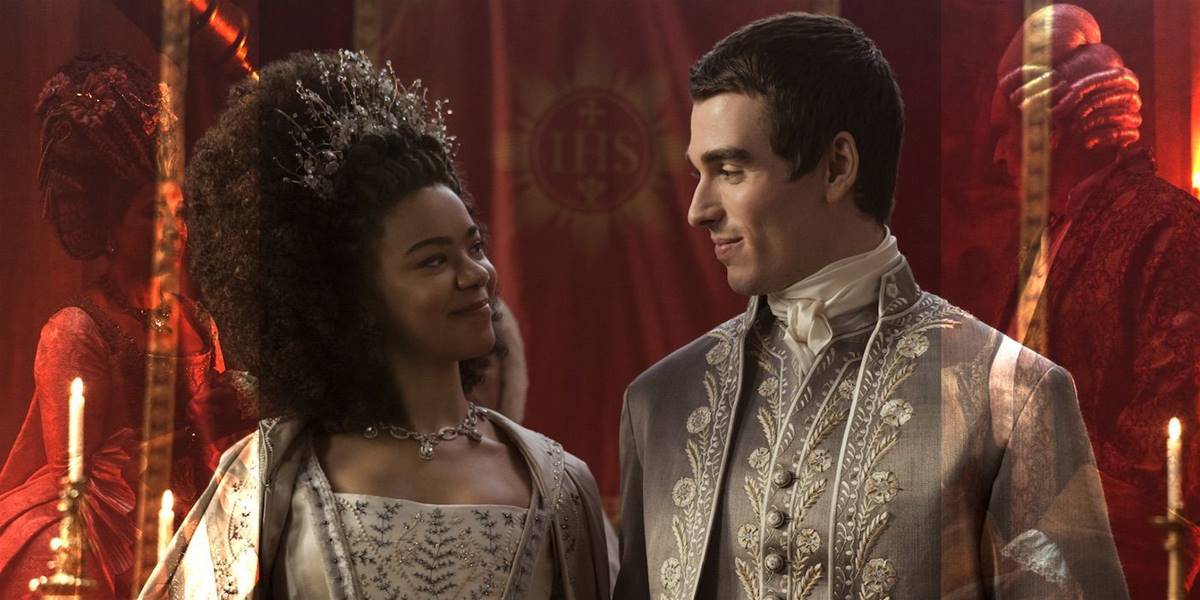
King George’s treatment is definitely not the only change made in the series. universe is ultimately historical fiction, using real figures from history to tell a fictional story, and the series maintains that. The most obvious example in the series is the “” when Queen Charlotte becomes the queen. While there is historical evidence to suggest that Queen Charlotte’s Portuguese lineage also includes African ancestry, and she is sometimes referenced as the first Black Queen of England, there was no real shift in England when she became a monarch to include people of color in higher social standing.
Likewise, the timeline in doesn’t entirely line up with the real-life history of England. While Charlotte is said to have primarily been raised by her older brother after the death of her parents in the show, that isn’t entirely true. In 1761 when Charlotte is adjusting to life in England with George, would have still been alive in the real world. Her father did die when she was eight though, so the series took liberties with her family origin in order to tell the story of her brother escorting her to an arranged marriage.
The point is also made in that King George’s mother and her advisors are the ones who chose Charlotte to be George’s wife.
, that’s not entirely true either. Charlotte was someone of a noble bloodline who was added to a list of options for George at the last minute for his arranged relationship. Some of the stipulations included a woman who was a Protestant because of the religious links to the crown at the time, as well as a woman who was educated but not an intellectual, so she wouldn’t interfere with the King’s decisions. Queen Charlotte series does depict a similar discussion, but George isn’t given a choice.
Of course, fans do understand that not everything in the series is going to be historically accurate when going into the new stories.
What provides the audience with a good story is going to trump historical accuracy for the universe.

